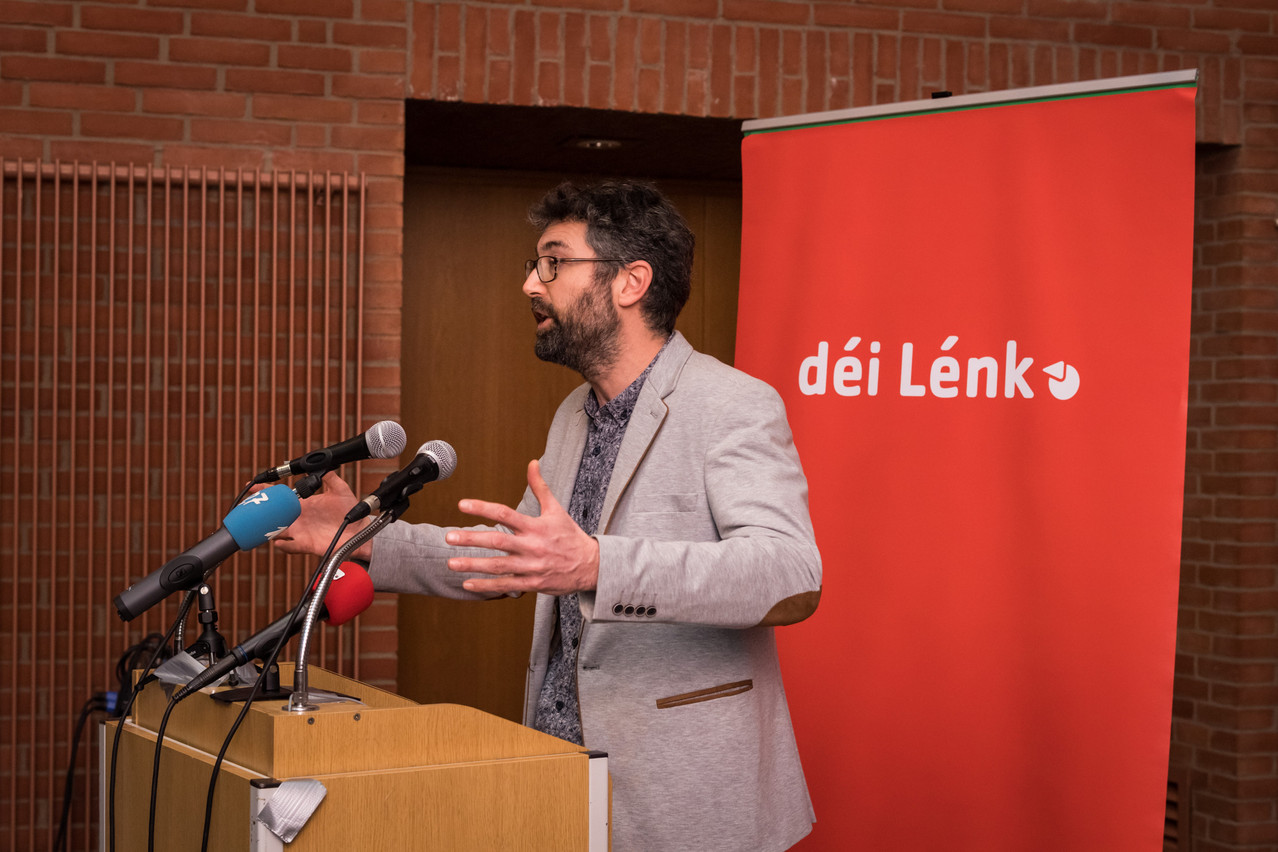One week to the day after Fokus, déi Lénk presented its electoral programme on 25 March, taking advantage of the ordinary congress it was holding at the Casino Syndical in Bonnevoie. The framework presented pertains only to the communal elections of 11 June, however: “For the legislative elections in October, we will wait until after an extraordinary congress to be held between the communal elections and the summer holidays,” explains Gary Diderich, spokesperson of the left-wing party.
In a little over two months’ time, the party will “for sure” run in six communes, and maybe in a seventh. “Schifflange may be added to Luxembourg, Esch-sur-Alzette, Differdange, Dudelange, Pétange and Sanem.”
Names on lists
In Luxembourg, the party’s list will comprise a quartet of MP , former MP , Ana Correia and Julien Gannard.
In Differdange: Gary Diderich, Fio Spada, Eric Weirich and Tessy Ewen.
In Esch-sur-Alzette: Line Wies and Samuel Baum.
In Sanem: and Jos Piscitelli.
In Pétange: Sonia Neves and Ben Muller.
In Dudelange: Carole Thoma.
As said at their New Year’s reception, dei Lénk wants every vote for them in 2023 to be “a clear signal”. Says Diderich: “The time for inaction by the current government is over.”
Affordable housing
As Déi Lénk , it is logical that housing is at the centre of their programme for the local elections.
“The municipalities have so many possibilities when it comes to housing, especially affordable housing. Yet they do little or nothing about it,” Diderich comments. “The public affordable housing stock is ridiculous. It must be below 2%, when our foreign neighbours generally have more than 15%.”
Déi Lénk’s objective in this respect is clear: to hit 10% affordable housing in the medium term and even 25% in the long term. “To achieve this, we must take advantage of the current real estate crisis in Luxembourg. The opportunity is there to try to increase the affordable housing stock. We must seize it! The municipalities must buy land, but also existing buildings. At the same time, they should try to convince developers to build.”
The public affordable housing stock is ridiculous. It must be below 2%, when our foreign neighbours general have more than 15%.
Still on the subject of housing, déi Lénk would like to see modular housing built on wasteland--but additionally, and above all, they want municipalities to finally use the famous “specific municipal tax for vacancy and non-use for the construction of certain buildings” which has been in their legislative arsenal since the Housing Pact 1.0.
“In reality, few use it. And given that the state has moved by introducing a land mobilisation tax and a tax on the non-occupation of dwellings in the property tax bill, everyone is waiting. But it will take years for all this to come into effect. And we don’t have time for that…”
Energy and water rates
Another important element of the left-wing party’s programme for the communal elections is to introduce a new water policy and to encourage energy production, in particular by requiring solar panels for new buildings or by implementing support for people who want to improve their homes’ existing energy ratings.
We would like to develop a public car-sharing system.
Regarding water: “Because it is becoming an increasingly scarce resource,” says Diderich, “we would like to introduce compulsory water recovery, including rainwater tanks in new buildings. We also want to introduce public financial aid for this. We also want to introduce a new tariff for tap water, with a reduced cost below a daily use of 50 litres per person, a cost price from 50 to 100 litres and a doubled price above that.”
30 km/h in the city
Finally, in terms of mobility, déi Lénk wants to reduce the speed in towns and villages to 30 km/h instead of the current 50 km/h. And they want to build and extend cycle paths.
“We would also like to develop a public car-sharing system,” Diderich continues. “For the moment, there is Carloh in Luxembourg, but also Flex, the solution set up by the CFL. But what we would like to see is a larger system. This would be the result of a collaboration between the municipalities, with parking spaces reserved exclusively for car-sharing.”
This story was first published in French on . It has been translated and edited for Delano.


